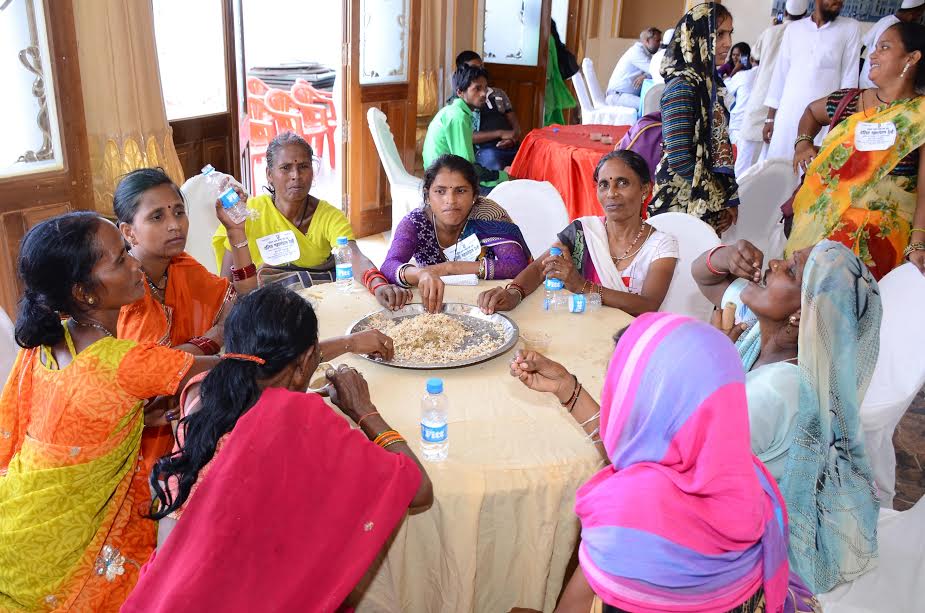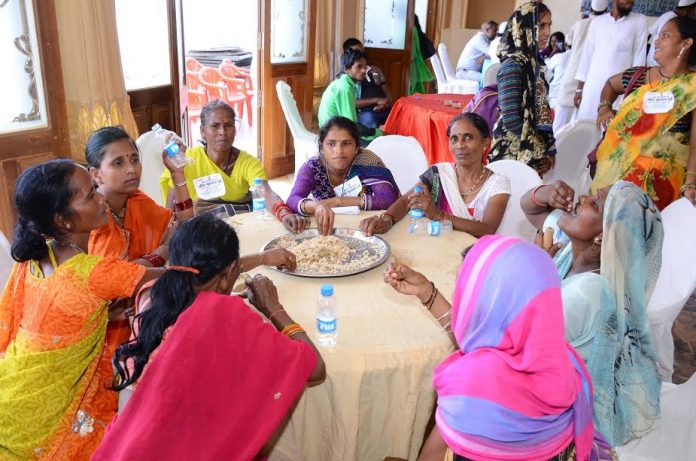By Mukhtar Ahmad for Twocircles.net
The BJP’s spectacular victory in India’s largest state has swept away any remaining myth of the monolithic Muslim bloc vote. In fact, it has made votes of Muslim who constitute 19% of total population as irrelevant. The BJP, feeling overconfident in majoritarian politics, decided to appoint Yogi Adityanath-considered by many as an anti-Muslim extremist-as Chief minister. This move has resulted in some apprehension and desperation in the mind of Muslims. There is discussion on social media what should be the next move of Muslims in present context.

The emphasis in most of times is what strategy must be adopted to stop the march of communal parties or BJP. So much so that many people are now advocating that Muslims should leave electoral politics for few years. This move cannot guarantee of non-polarization as one can see the example of Christians. They are not active in the politics but still face the wrath of communal forces. Also, the onus of defeating the BJP and supporting a secular party shall not be considered as the total responsibility of Muslims. Another myth created by media that Muslims vote en bloc for any party which is in a position to defeat BJP candidate in their constituency is not correct. The problem with this type of approach is that it is impractical (because of the difficulty in identifying who is strong) and very dangerous: it divides Muslim votes and consolidates Hindu votes towards BJP. Certainly this myth is deliberately created by the media in order to divide the Muslim votes and consolidate the Hindu votes.
However, while Indian Muslims are undoubtedly facing increasing insecurity and marginalisation–particularly as Hindu right-wing forces become more powerful–they can still have faith in majority of Hindus who are still tolerant and have no communal agenda. It is therefore important to look how best cooperation with fellow secular Hindus can be obtained.
The way out
For this, we have to look at all the possibilities that are responsible for consolidation of Hindu votes towards BJP. The social fabric which binds the Hindu and Muslims for centuries is gradually missing because of less interaction between the two communities. Also, the BJP and RSS have been exploiting certain trivial issues so that the Hindus feel that even when they are in majority they are vulnerable and do not have upper hand in society. This social aspect of the problem is much more important and serious than electoral politics and must be addressed as early as possible. However, if the votes polled by BJP is about 40 % of total votes polled. Since in elections only 60% people vote out of which BJP gets 40%. Assuming no Muslim has voted for BJP, the total Hindu votes polled by BJP is 24%. Therefore, it can be presumed that nearly 76% of Hindus are not strong supporters of BJP. Now Muslims should work to have good relations with them so that they can help counter the anti-Muslim propaganda. Some of these problems that easily identified are:
Distortion of history
There is a deliberate attempt to project that the Muslim presence has always been hostile to Indian languages, religions and culture. This religious conflict has been fuelled by ideological assumptions about that period rather than an accurate rendering of the subcontinent’s history.
There is a false propaganda that large sections of Muslims do not use family planning measures. It creates suspicion and ill-feeling among the Hindus as if Muslims will outnumber Hindus in few years.
Media and its manipulations
The present-day media is too much biased. The information provided by the print media (mostly vernacular) and many electronic media channels are also responsible for communal tensions.
The ‘responsibility’ of terrorism
There is propaganda not only in India but worldwide that all terrorists are Muslims. The BJP propagates that threat to India is real and Hindus are victim of it. In spite of all religious of thoughts of Muslims condemning the terrorism, the propaganda continues that all Muslims support the terrorism.
But is religion responsible for communalism? There are intellectuals who do not believe that religion has any role to play in it. Bipan Chandra for example, holds that communalism is neither inspired by religion nor is religion an object of communal politics, even though the communalist bases his politics on religious differences, uses religious identity as an organising principle, and in the mass phases of communalism uses religion to mobilise masses. Although religion has no role in communalism yet communal violence is instigated by religious fanatics, initiated by anti-social elements, supported by political activists, financed by vested interests, and spread by the callousness of the police and the administrators.
The above false and unfounded propaganda is continuously fed to the media by various BJP and RSS supported organisations. It has to be tackled by historians and secular political parties. Writing to vernacular media by secular people from both communities can help to some extent in diffusing the communal atmosphere.
Among other causes are the exploitation of the deep religious traditions of both the communities. The leaders also try to use economic arguments to instil fear and suspicion in the minds of people and incite them for violence at the least provocation. In these areas, Muslims can start initiative in normalising the relations with the majority community. In the words of Jigar Moradabadi-
un kā jo farz hai vo ahl-e-siyāsat jāneñ
merā paiġhām mohabbat hai jahāñ tak pahuñche
(It is for political leaders to know their duties, Love is my message far may it reach)
First of all, Muslims must become beneficial to society and get away from the web of begging for favours from the government. Muslims should strive to work with everyone. They must take part in organising protests or be part of protests on issues which are important to other social groups as well as Muslims. Simply raising the issues related to the Muslim community leaves us isolated.
The affluent Muslims generally do not work for the developmental activities. Even if they do some work it will be mainly for the welfare of Muslims alone. They must be sensitized to the problems of all weaker and sections of society. Good educational institutions may be opened in places where mixed population exists so that interaction between the children of two communities can take place. There is urgent need for a society/organisation working for the welfare of all sections of society. Legal cells may be established in every cities with Muslim lawyers ensure to provide legal aid to one and all as social responsibility.
One of the main reasons of conflict between the two communities is during the religious processions. There is need to tone down the ways of celebrations and may be observed with cooperation of both communities.
There is need to strengthen the quality of madrasa education to create teaching of human values there. For this there has to be some control by the top madrasas over them. Then the Friday sermon in jama masajid of every town must address the social aspect of Islam. The Friday sermon in local language addressing people about duties towards mankind is required in every mosque. Most Muslims seem to be somewhat unclear on the issue of man’s obligation to man. (huququl Ibad). They think that so long as they fasted and prayed and paid Zakat and went to Hajj (Huququllah), it did not matter how they treated people, Muslims as well as non-Muslims (Huququl ‘Ibad). Nothing could be farther from the truth. Conflating their religion with five Pillars of Faith, they have shed their religion of all its dynamic, liberating, enlightening and humanistic dimensions.
For this concerted effort is required by at least one organization dedicated for this purpose only.
The author is retired Professor of Electrical Engineering, Aligarh Muslim University


